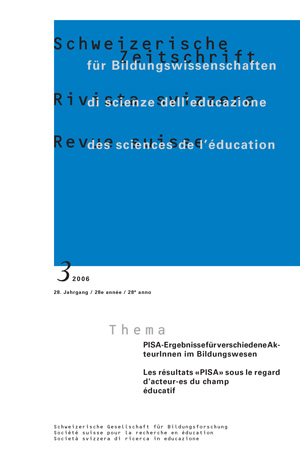Underachievement. A glance in the black-box of an irritating phenomenon
DOI:
https://doi.org/10.24452/sjer.28.3.4737Abstract
This article presents the results of a study on gifted underachievers. Based on the data of two sub-projects of Swiss longitudinal studies, two subgroups (underachievers and achievers) were extracted and tested for social-structural attributes, school attitudes and career plans. The group of the underachievers is defined as juveniles with an IQ percentage ≥90 and a school achievement percentage in German/Mathematics ≥50, the achievers with an IQ percentage ≥90 and a school achievement percentage in German/Mathematics ≥75. The main results point clearly to differences between achievers and underachievers. Underachievers are mainly male, mostly from middle-class families, less performance motivated and with considerable problems in self-regulation. They skip school more often, and they report on worse relationships to their teachers, than the achievers do. The results herewith point to the necessity of looking at underachievement not only from an individual, but also from an institutional perspective.
Downloads
Downloads
Published
Issue
Section
License
Copyright (c) 2006 Margrit Stamm

This work is licensed under a Creative Commons Attribution 4.0 International License.



